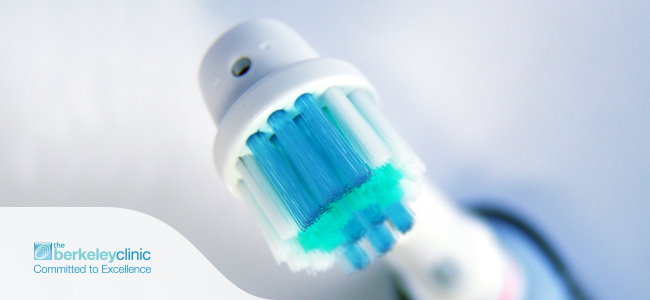The best option for orthodontic care

The type of toothbrush you use has a direct impact on the way you brush your teeth and your overall oral health. There are benefits to both manual and electric toothbrushes, so it’s important to make an informed choice that’s right for you.
Manual toothbrushes for dental issues
Traditional manual toothbrushes are able to hold their own competing with modern electric models because of the unique advantages to people with certain dental issues. Those with dental implants may find a specially-designed manual brush easier for aftercare, as someone with dentures may appreciate the extra level of deep cleaning they are able to achieve.
Ease of use
Many find manual toothbrushes easier to use at home and on the go: there are no moving parts to break, no batteries to charge or change, and no power outlet required. They are smaller than their electric counterparts, and their slimmer design makes it easier for the user to move inside the mouth. They are also very inexpensive, easy to replace, and most can be recycled. Oral health professionals recommend you change your toothbrush every 3 months.
Electric toothbrushes and deep cleaning
Powered brushes have gained popularity in part for their ability to clean more evenly than manual brushing. The rapidly spinning head ensures each tooth is free from plaque build-up without harsh pressing or scrubbing, which is more likely to happen with a manual brush.
Electric toothbrushes offer a more consistent pattern of cleaning throughout the mouth, whereas a manual toothbrush may miss areas according to its user’s ability. Electric toothbrushes are suitable for those with impaired motor skills or coordination problems.
The best option for orthodontic care
Manual toothbrushes can be awkward to use for people with braces as there are many hard-to-reach gaps where plaque can build up. An electric toothbrush offers consistent coverage while the rapid movement of the bristles effectively cleans around and under orthodontics. Over-enthusiastic manual brushing may be ineffective or even damage braces, so it is very important that care is taken if not using an electric brush.
Similarly, if you have been to see one of our cosmetic dentists, they may advise you to use an electric toothbrush to avoid damaging tooth enamel: cosmetic treatments rely on good aftercare to stay healthy and looking beautiful.

The latest technology
While electric toothbrushes still don’t cater for as many unique circumstances as manual toothbrushes, advances in dental technology mean they are not far behind. As well as a growing range of specialised heads on offer, today’s electric toothbrushes also offer pressure sensors, timers and even USB chargers to make brushing easier.
Electric toothbrushes are growing in popularity, and their ease of use and convenient features make them an attractive choice. Manual toothbrushes are still relevant, however, and particularly suited to those who travel or maintain general oral health with no special requirements. However, whichever brush you choose, what’s more important is to remember to brush your teeth regularly.
Visit Berkeley Clinic Glasgow
When choosing a toothbrush it is vital to consider your own unique dental health requirements. The wrong choice will not only leave you out of pocket, but potentially damage your oral health. Berkeley Clinic can advise you on which toothbrush best fits your needs, so don’t hesitate to contact our Glasgow office today for friendly and helpful advice.
Tags: are electric toothbrushes better, correct way to brush teeth, how often should you change your toothbrush. brush your teeth properly, proper brushing technique, proper way to brush teeth, replace your toothbrush, using electric toothbrush

